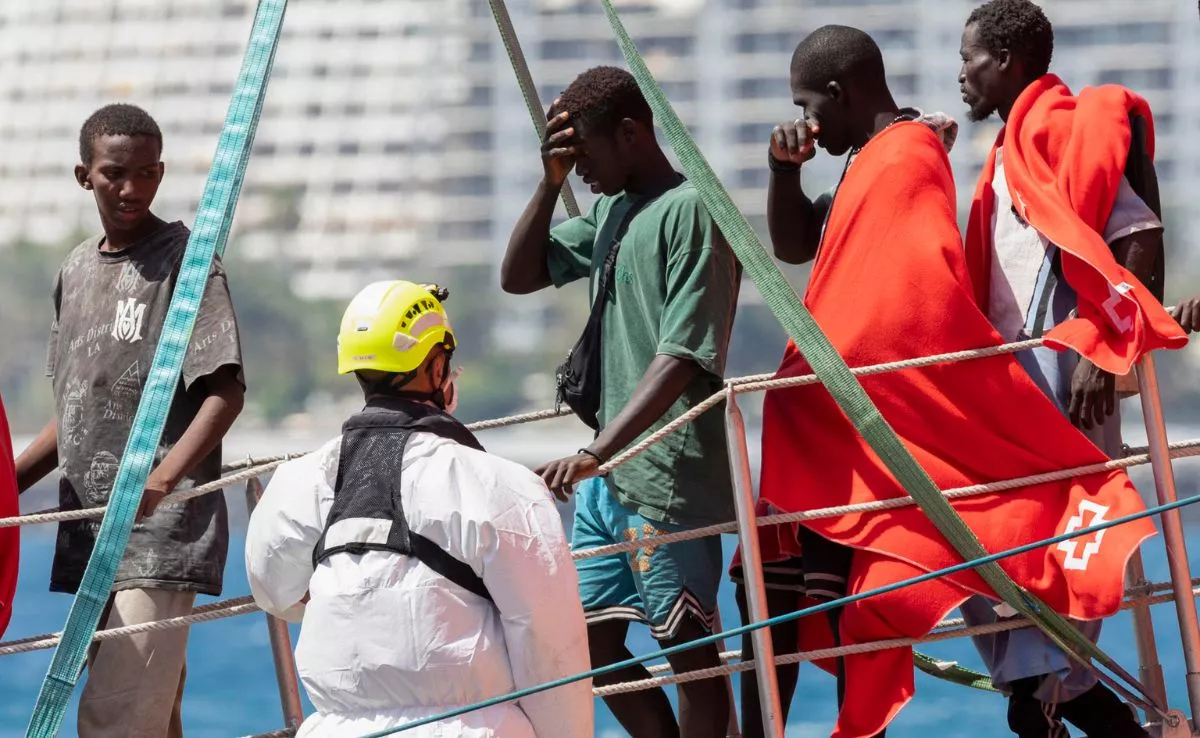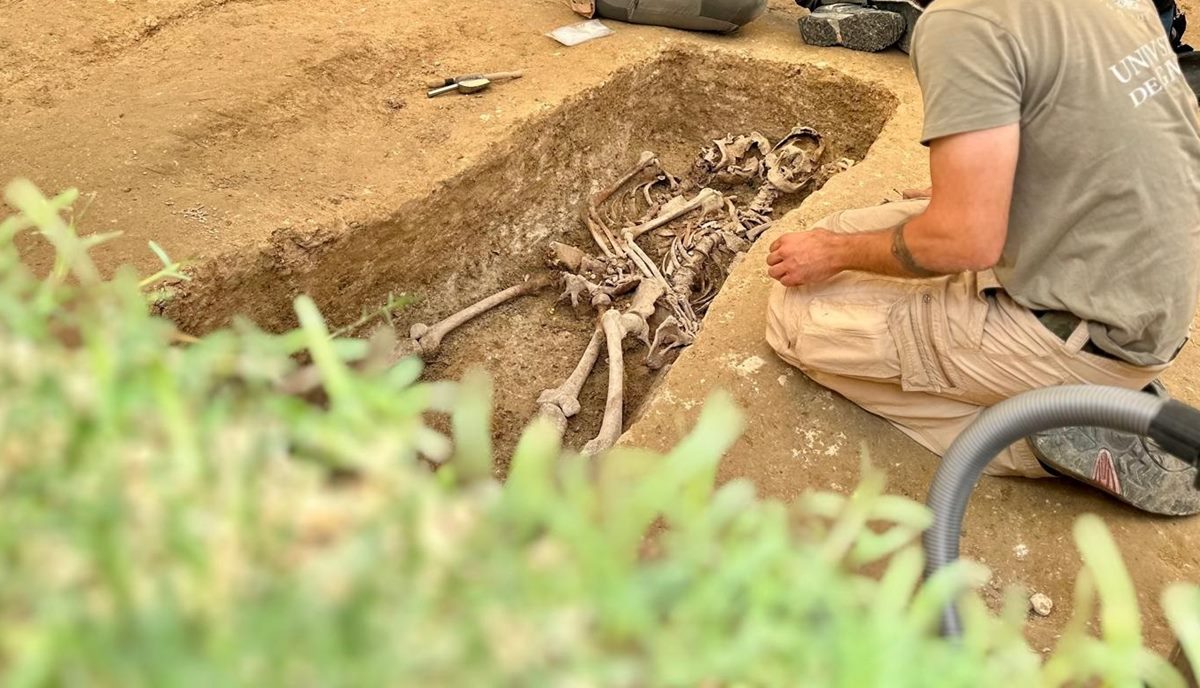Canary Islands Government Demands Clear Instructions for Migrant Minor Transfers

The Councillor for Social Welfare, Equality, Youth, Children, and Families of the Canary Islands Government, Candelaria Delgado, has called on the state administration for “complete operational instructions” regarding the transfer of migrant minors to other autonomous communities.
During the full session of the Parliament of the Canary Islands, she also advocated for a “specific framework” for the referral of asylum seekers, noting that the standard mechanism regulated by the royal decree amending the Immigration Law cannot be applied automatically to these minors.
Legal Certainty
This is why the Canary Islands government has requested the Supreme Court to provide clarity on the matter to “avoid legal uncertainties” and safeguard the best interests of the child.
Delgado urged the central government to provide “a guide” that establishes “complete operational instructions, channels, formats, document custody, responsible validations for transferring documentation and files in accordance with the regulations,” without which “the process can be fragile and at risk.”
Clear Rules
“Our proposal is clear: it is not just about transferring minors, but doing so with legal certainty. We need clear rules that allow receiving communities to assume guardianship without uncertainty and protect the minors from potential legal loopholes,” the councillor summarised.
As a result, the Canary Islands Government has communicated to the State the “urgency of defining this specific framework” after last week’s interdepartmental commission indicated the possibility of using the royal decree law itself to manage the transfers of asylum-seeking minors.
Slow Process
The councillor has called for increased efficiency in this process, noting that of the more than 1,000 children eligible, only “72 have left the Canary Islands.”
Currently, at the Canarias 50 centre, where these children are supposed to stay for only fifteen days, there are over 160 and the regional government is waiting to transfer another 40. “We cannot continue like this,” she exclaimed.
Ongoing Dialogue
Candelaria Delgado has requested “constant dialogue” with the State to plan possible transfers a month in advance, anticipate profiles, and prevent the return of files due to formal defects.
She emphasised that Canarias has been requesting a proposed schedule in all inter-administrative commissions, a monthly timeline with fixed quotas and destinations, to effectively manage transfers, logistics, and accompaniments.
Extreme Vulnerability
She highlighted that these minors are “extremely vulnerable,” and their guardianship “requires not only the State‘s solidarity but also full legal guarantees.”
She assured that Canarias “is doing its part,” preparing the files “with rigor,” but without those instructions or the release schedules “nothing can materialise,” she insisted, as “the regulations allocate functions and deadlines to each administration, and this immense task cannot fall on just one.”
Formal Declaration
In addition to this “guide,” the Canarian Councillor for Social Welfare, Equality, Youth, Children, and Families has requested the “formal closure” of the declaration of the migration contingency “for operational purposes,” that is, its translation into “verifiable procedures.”
She has demanded that the receiving autonomous communities comply with the law strictly, as “co-responsibility is no longer voluntary.”
Best Interests
“From Canarias, we understand that political positions are legitimate, but they cannot take precedence over the best interests of the child or what is stipulated in the royal decree law 2/25 and its development,” she concluded.
The councillor appeared in the full session at the request of deputies Raúl Acosta (AHI) and Jana González (CC), who both warned about the rise of xenophobic discourse and the resonance it is finding in society, including in Canarias.
Child Welfare
González also expressed concern that the Public Prosecutor’s Office is not conducting inspections in reception centres to ensure the welfare of those present, and urged against using minors as political weapons or “turning a blind eye” in search of political gain, as this will only benefit the far-right.
Juan Manuel García Casañas (PP) criticised the central government’s “non-existent migration policy” and the “lack of control” at the borders, asserting that the Supreme Court had to compel them to adhere to “what the law says,” yet they continue to “fail to meet deadlines.”
Political Confrontation
He emphasised that the PP has “no responsibility” in the Spanish government and that in Canarias, it will “defend the Canarians above any autonomous community.”
Elena Máñez (PSOE) countered that it is evident the PP holds “zero responsibility” in Canarias, adding that “Génova and Mr Manuel Domínguez do not care about migrant children.”
Crossed Critiques
She accused the PP and CC of creating “fictitious controversies” over the redistribution of minors, asserting that everyone must do their part with loyalty, in a spirit of collaboration rather than continuous confrontation.
“One cannot say they are awaiting instructions and the next day Ceuta has transferred all files to the Ministry,” suggested the socialist deputy, stressing that “the Government is not the same as the PP, which walks away from the table, sabotages sectoral conferences, or shuts down centres like in Madrid.”
Migratory Causes
Luis Campos (NC) called for reflection on “the true causes” of migratory movements and the necessity of establishing legal and safe routes; while Paula Jover (Vox) insisted on linking immigration with insecurity, despite the decline in the arrival of rafts and boats in recent months.
Jesús Ramos (ASG) invoked the unity of all groups in the Parliament of the Canary Islands to “send a strong message” and support the regional government in its call for solidarity from other communities, some of which “do not understand or do not want to understand” the reality of the archipelago.













